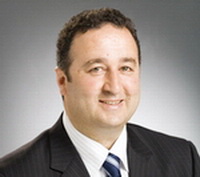
Sada-e-Watan Sydney ™
sadaewatan@gmail.com

..................and my special Hall of Fame Award went to Syed Zafar Hussain Shah of Sada-e-Watan, for 20 years of dedicated community service

Hon. Shaoquett Moselmane
|
About this Item |
|
|
Speaker: |
|
|
Business |
Adjournment, ADJ |
MULTICULTURAL MEDIA AWARDS
Page: 23524
The Hon. SHAOQUETT MOSELMANE
[6.47 p.m.]:
On 2 September 2013 the second Multicultural Media
Awards presentation dinner was held at the New South Wales Parliament. It was a
great night celebrating multicultural and Indigenous media as ambassadors of a
harmonious multicultural, multifaith and multilingual Australia. It was a
successful night of tributes to migrant and Indigenous journalists who have
worked tirelessly with little recognition. It was well attended by a host of
multicultural and Indigenous media representatives from across the country. Many
distinguished Indigenous and foreign dignitaries and parliamentary colleagues
joined the celebration, including the Hon. Linda Burney, the Hon. Luke Foley,
the Hon. Amanda Fazio, the Hon. Greg Donnelly and the Hon. Sophie Cotsis. I am
indebted to them and to the keynote speakers: the Hon. Tony Burke, Senator the
Hon. Kate Lundy, Indigenous elder Brian Butler, and the master of ceremonies, Ms
Yalda Hakim from BBC World News. Unfortunately, for the second consecutive year
Premier Barry O'Farrell declined the invitation.
The Multicultural Media Awards are a celebration of those who have never been
recognised and I repeat what I said on the night: For me, the idea of having the
Multicultural Media Awards was simple, but long overdue. In 165 years of
multicultural and Indigenous media, there had never been a specific event
acknowledging the achievements of the talented migrant and Indigenous
journalists who had been serving their communities through multicultural media.
Historically, ethnic media were not trusted. In fact, restrictions and
government controls were imposed that required publishers to seek special
permits from the Department of Immigration, to print at least 25 per cent of the
text in the English language, and to forward a copy of every publication to the
Commonwealth Investigative Service. Until 1955 the foreign language press, as it
was called, was viewed with suspicion and some thought it served as a hindrance
rather than a help in assimilation. Today the foreign language press and
multicultural and Indigenous media and their journalists have the capacity to
bring news to every household as never before.
Indigenous media has developed from its grassroots origins to staking a hold in
the mainstream while retaining its authenticity. Multiple voices are growing in
Indigenous-specific news media and free-to-air 24/7 National Indigenous
Television. Last year, the National Indigenous Times became the first
weekly Indigenous newspaper. The Koori Mail is another prolific
Indigenous newspaper and the National Indigenous Radio Service has 180 radio
stations. Today there are more than 100 Indigenous-specific news media formats
in Australia. The empowerment of Indigenous print media, broadcast and other
news formats is informing the national consciousness, engaging the highest
public institutions in our nation and, more importantly, has highlighted issues
long untold and long unheard, and therefore this goes to the heart of improving
the wellbeing of peoples.
I congratulate all participants in the Multicultural Media Awards, in
particular: Mr Gerry Georgatos, Multicultural Journalist of the Year—The
Stringer, National Indigenous Times; Linna Lee, coverage of community
affairs in Australia—Korean, TOP Media; Pawan and Rajni Luthra, coverage of
community affairs abroad—Indian Link; Oi Ling Jojo Lee, Multicultural
Photographer of the Year—Sing Tao Daily; Steve Giannakouras, online
coverage of multicultural community affairs—mycities.com.au; Helen Velissaris,
feature writing—Greek, Neos Kosmos; Wing Yam Lee, news reporting—Sing
Tao Daily; Patrick Zhu, editorial reporting—Oursteps; Jan Smith,
contribution to social inclusion and multiculturalism—3ZZZ Radio; Gerry
Georgatos, coverage of indigenous affairs—The Stringer; Gerry Georgatos,
investigative reporting—The Stringer; Pawan and Rajni Luthra, online
innovation of news blog or news website design—Indian Link; Joel Mapayo,
editorial cartoon—Philippine Times;
and my special Hall of Fame Award went to Syed Zafar
Hussain Shah of Sada-e-Watan, for 20 years of dedicated community
service.
My special thanks go to the judging committee for their support and, more importantly, their decision-making: Professor Duncan Ivison, Dean, Faculty of Arts and Social Sciences and Professor of Political Philosophy, University of Sydney; Professor John Simons, Executive Dean, Faculty of Arts, Macquarie University; Professor Lynette Sheridan Burns, Deputy Dean, Humanities and Communication Arts, University of Western Sydney; Dr Rick Flowers, head of the Adult Education Program and Postgraduate Programs, Faculty of Arts and Social Sciences, University of Technology, Sydney; Mrs Majida Abboud Saab, journalist and former Director, SBS Radio Arabic Programming; Ms Cathy Craigie, freelance consultant and Executive Director, First Nations Australia Writers Network; Dr Zoran Becvarovski, ear, balance, facial nerve, nose and throat disorder specialist; and Dr Fawzy Soliman, senior academic supervisor, University of Technology Sydney.
My special thanks go also to our sponsors: Ayers Alliance, Arab Bank Australia, Ella Rouge Beauty, Nimco Foods, National Indigenous Times and MyHouse. I also thank Mr Louay Moustapha and Ms Aisha Amjad of my staff for their support. In closing, in view of the fantastic participation of Indigenous media in these awards, and as chair of the Multicultural Media Awards, I am proud to announce that I have decided to change the name to the 2014 Multicultural and Indigenous Media Awards.